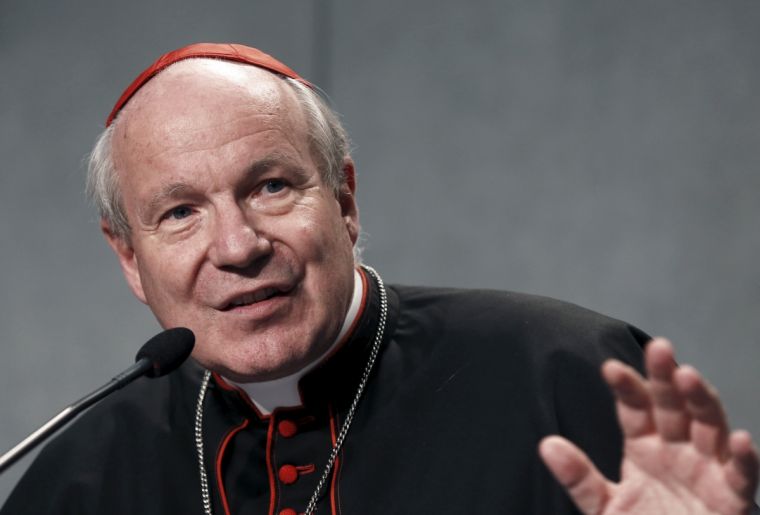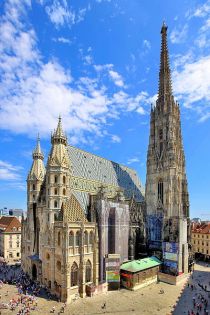Do Not Blame Muslims For De-Christianisation Of Europe, Says Leading Cardinal

A leading Catholic cardinal has said that Christians must not blame Muslims for wanting to "Islamise" Europe.
Instead, they should work harder to fill their churches rather than letting them be sold off and converted.
In an interview with Austria's Kronen Zeitung newspaper, Cardinal Christoph Schönborn, aged 71, was asked "Will Islam conquer Europe? And are we going to lose our Christian values?"
The cardinal, once considered in the running as a possible Pope or "papabile", said: "When we see that the mosques are well visited and the churches are badly visited, we can not blame Muslims for wanting to Islamise Europe. But we must reproach ourselves for not doing enough to maintain a Christian Europe."
Schönborn also said Brexit was "unfortunate" because "European cohesion is incomparably better than the European antagonism we have suffered for centuries."
And he urged the world not to rush to judgement against Donald Trump before giving him a chance to show what he can do.
There were also shaking of heads when Ronald Reagan was elected but Reagan was one of the best presidents the US ever had, he said.
"So you should not judge rashly. This applies to Trump and that applies to everything."
He said that as a Christian, he would like the Middle East to become Christian again, as it once was.

"Of course I wish this because I believe that Christianity is not only my personal religion, but a religion that is a good religion despite all the mistakes that have happened. So I can not blame the Muslims if they want Europe to become Islamic. That's not my problem."
He said that of course he did not wish St Stephen's Cathedral to become St Stephen's Mosque.
"Of course, I wish that the St. Stephan's Cathedral remains a living Christian house of God, a place of prayer and not just a tourist attraction for five million tourists a year.
"But we already have 200 Islamic places of prayer in Vienna. We have mosques in cathedrals in Spain, and we have, for example, in Damascus, the cathedral, where John the Baptist is now a mosque, and we have Hindu temples in India, which were formerly mosques, and vice versa .
"That religions are in competition with each other is as old as the world. I am pleased that Muslims can freely exercise their religion with us, but I also wish that Christians in Saudi Arabia were able to practise their religion freely, and in other Muslim majority countries."
It is not Muslims' fault if Europe is being de-Christianised, the cardinal added.
"Fear of the Islamisation of Europe is nonsensical if one does not contribute something to the fact that Europe remains Christian. But, of course, if a church is sold in the Netherlands and transformed into a supermarket, when the supermarkets are more important to us than the Christian roots of Europe, we must not be surprised that Europe de-Christianises. But it is not the fault of the Muslims."
The key issue Austria is facing is the integration of refugees, the cardinal said.
Some refugees abuse Austria's hospitality and become criminal. "Where does tolerance, mercy, charity end? There, where it also ends for Austrian citizens. Crime is crime. And as with the people of Austria, there are also among the refugees those who abuse social benefits. But it would not be right to conclude that all refugees do this."
He admitted that most of the terrorist attacks of recent times have been associated with the call: "Allah is great."
Schönborn said: "That's a problem. But I also say that religions are always at risk of terror being committed in their name. Just think of the Protestants and Catholics in Northern Ireland, who killed each other - And the name of their religion."
He said his hope for 2017 was for more peace, more silence, more thoughtfulness, for less talk and more listening.
In a separate New Year's address, Schönborn told Radio Niederösterreich that worries about 2017 were justified: "Economic development, unemployment, environmental and climate change, the never-ending war in Syria, the refugee flows from the Middle East and Africa, the growing gap between the rich and poor."
But there is hope, and this hope never dies, he said.
"The refugee situation has shown that in Austria many people are really helpful."











